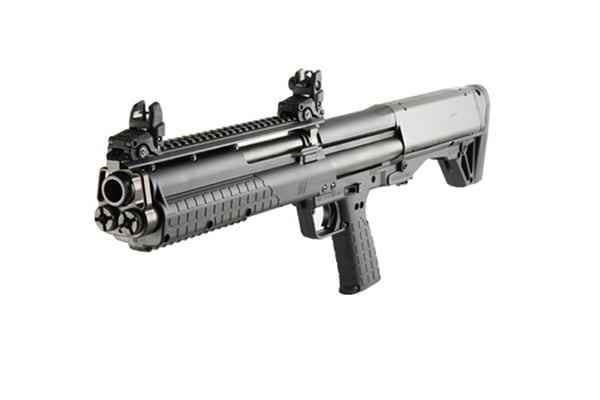For gun enthusiasts, owning a firearm is just the beginning. The key to truly being prepared for self-defense situations lies in comprehensive and continuous training.
Self-defense firearms training programs are designed to equip individuals with the skills, knowledge, and mindset needed to effectively use your gun in defense of themselves or others.
What is Firearms Training?
Self-defense firearms training goes beyond basic gun handling and shooting skills. It encompasses a broad spectrum of techniques and strategies that are vital for effective self-defense.
These programs often include real-life scenario training, legal education, stress management, and decision-making under pressure.
Unless you’re an ex Marine with no trace of PTSD and ice in your veins, this training will make you better.
Components of a Comprehensive Training Program
1. Basic Firearms Handling and Safety
Every solid training program begins with the fundamentals of firearm safety and handling. This includes proper grip, stance, aiming, trigger control, and understanding the mechanics of your firearm.
2. Shooting Skills and Accuracy
Developing shooting skills is crucial. This involves not only static target practice but also dynamic shooting drills that mimic real-life situations. Accuracy under stress is a key focus area.
3. Tactical Training and Scenario-Based Drills
Tactical training involves learning how to move, take cover, reload, and clear malfunctions efficiently. Scenario-based drills simulate real-life self-defense situations, providing hands-on experience in decision-making and firearm use under stress.
4. Legal Education
Understanding the legal aspects of using a firearm in self-defense is essential. This includes knowing the laws of your state regarding self-defense, the use of deadly force, and the legal aftermath of a defensive shooting.
Not only will this training give you the information you need to make good decisions, it will also give you confidence when the moment comes that you’re not opening a legal can of worms.
5. Stress Management and Mental Preparedness
Training programs often include components that help in managing the psychological and physiological effects of stress. This is crucial for maintaining composure and decision-making ability in high-pressure situations.
Choosing the Right Training Program
Selecting the right self-defense firearms training program is a personal decision that should be based on your individual needs, skill level, and defensive goals.
Factors to consider include:
- Instructor Credentials – Look for programs with experienced and certified instructors.
- Program Content – Ensure the program covers all aspects of self-defense training, not just shooting.
- Training Philosophy – The philosophy of the program should align with your personal beliefs and goals.
- Location and Facilities – Consider the convenience of location and the quality of the training facilities.
1. Advanced Training Opportunities
For those looking to take their skills to the next level, advanced training opportunities are available. These might include specialized courses in close-quarters combat, defensive tactics for concealed carry, or precision shooting.
2. Women-Specific Training Programs
Many organizations offer self-defense firearms training specifically for women. These programs are tailored to address the unique concerns and challenges women may face and often provide a supportive and empowering training environment.
The Importance of Continuous Training
Self-defense is a skill that requires ongoing practice and refinement. Regular training sessions, refresher courses, and practicing on your own are vital for maintaining and enhancing your self-defense capabilities.
Integrate Physical Fitness
Physical fitness plays a significant role in self-defense. A good training program will often emphasize the importance of being physically fit to improve reaction times, endurance, stress management and overall performance in defensive situations.
The Role of Simulations and Technology
Advancements in technology have led to the use of simulations and virtual reality in firearms training. These tools provide realistic scenarios and environments for safe and effective training.
Most police forces use VR training for recruits and you can do the same at home, with tailor made training programs or even games like Onward and Contractors.
They have realistic weapons handling, firing systems and a lot of the maps are urban warfare environments.
Community and Support
Many training programs foster a sense of community among participants, offering a network of support, shared experiences, and ongoing learning opportunities.
FAQ: Self-Defense Firearms Training Programs
1. How often should I participate in self-defense firearms training?
Consistent and regular training is key to maintaining your skills. Engaging in formal training at least 3-4 times a year, coupled with regular personal practice, is generally recommended to keep your skills sharp.
2. Can beginners enroll in self-defense firearms training programs?
Yes, beginners can and should enroll in self-defense firearms training programs. Many programs offer introductory courses designed for individuals with little to no experience with firearms.
3. Are there age restrictions for self-defense firearms training?
Age restrictions may vary depending on the training program and state laws. Most programs require participants to be at least 18 years old, though some may allow younger individuals with parental consent.
4. What gear do I need for a self-defense firearms training program?
Basic gear typically includes a reliable firearm, ammunition, eye and ear protection. Aside from that you should be fine with basic omfortable clothing suitable for physical activity, and a holster if you’re training for concealed carry.
5. How do I find a reputable self-defense firearms training program near me?
Research online for local programs and read reviews or testimonials. Additionally, you can ask for recommendations from local gun shops, shooting ranges, or firearm enthusiast groups. And check the credentials and experience of the instructors, because sometimes people lie.


